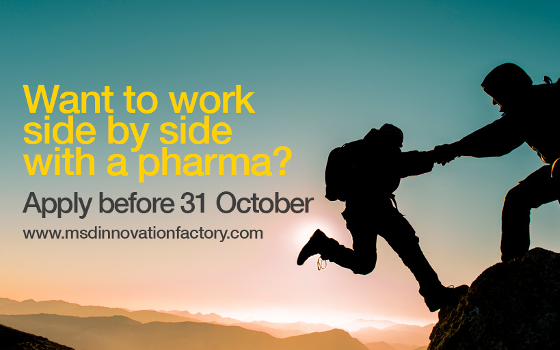Co-create with a pharma and go together for unmet needs
MSD is having difficulty to reach anaesthesiologists to share the benefits of using Deep Block (DB) until the end of operations. Deep Block improves surgical conditions as it decreases the movement of the muscles and increases the volume at the operation area.The main reason for not reaching them is their busy workload and the time spent at operation rooms, where MSD representatives cannot enter. There’s an opportunity for solutions oriented to education, e.g. while at the operating room, communication and team building with surgeons.
Worldwide participants are welcome to apply proposing solutions that will be implemented first in Turkey. The finalist of this challenge will have the opportunity to improve the proposal in collaboration with the local MSD team that proposed the challenge.
Find all the info about the anaesthesiologists challenge: https://www.msdinnovationfactory.com/challenges/anestouch/
Do you have a solution? Apply now!
www.msdinnovationfactory.com
How MSD Innovation Factory works
The innovation factory initiative aims to give support to the companies that come up with the best ideas to solve one of the 7 challenges identified in the EEMEA Region (Eastern Europe, Middle East and Africa) by local MSD teams.The selection is done in four steps:
- Solutions submitted before 31st October are reviewed by the challenge owners (the local MSD teams).
- Each country will select the best solution for its proposed challenge.
- During co-creation sessions the selected company and the local MSD team will work together in an improved proposal to be jointly presented in a Final event.
- At the Final event in January 2018, the 7 finalists will pitch their solution in front of a senior jury from MSD. The jury will award 3 winners.
The prizes
Each of the 3 winners will receive the following:- Up to $20,000 to pilot their solution in the challenge-related local market.
- Support from MSD local team to connect with the local ecosystem (eg. medical professional associations), deal with potential regulatory issues and disseminate leveraging MSD local channels. It will also contribute with expertise and business know-how.
- If the local launch is a success after 12 months, its outcomes will be globally shared within MSD to investigate further implementation beyond the initial market.
All 7 finalists will get a 500€ grant to cover travel expenses to attend the Final event in Istanbul, and the opportunity to optimize their proposal in collaboration with the local MSD team that proposed the challenge. They will also receive visibility through the initiative communication channels.
MSD is a global healthcare company with a 125-year history committed to being the premier, research-intensive biopharmaceutical company and are dedicated to providing leading innovations and solutions for today and the future.
Applications until 31 October
Do you have a solution? Apply now!
www.msdinnovationfactory.com
